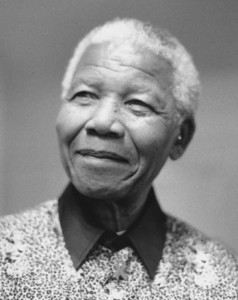 Recently, I read a blog post by Richard Branson discussing Richard Stengel’s biography of Nelson Mandela. Branson talked about the impact it has had on his life and I was intrigued. The reason I want to read the book is for the key lessons from Mandela. They are:
Recently, I read a blog post by Richard Branson discussing Richard Stengel’s biography of Nelson Mandela. Branson talked about the impact it has had on his life and I was intrigued. The reason I want to read the book is for the key lessons from Mandela. They are:
Courage is not the absence of fear.
Be measured.
Lead from the front.
Look the part.
Lead from the back.
See the good in others.
Keep your rivals close.
Have a core principle.
Know when to say no.
Know your enemy.
It’s always both.
Love makes the difference.
It’s a long game.
Quitting is leading too.
Find your own garden
They all resonate with me, but of particular interest were Lead from the Front AND Lead from the Back. A very good friend once told me that I was a very good leader, however, wouldn’t it be nice if everyone crossed the finish line when I did? It was one of the best pieces of leadership advice that I have ever received.
When leading, I always felt it was important to show the way, paint the vision and lead the charge. What I had been forgetting to do was look over my shoulder to make sure others were not having troubles getting to the finish line. In other words, I was leaving the wounded on the field of battle. Not a very good way to lead.
What I took away from that singular piece of advice was that there are times to lead the charge, paint the vision, take the hill, etc., but there are equally important times to stand back and guide from behind.
People are more talented than they think they are and if we guide, rather than just let them follow, their talents will show up even more effectively. Sometimes it’s just a word of encouragement, sometimes it’s asking the right question, sometimes it’s a gentle nudge in the right direction. Always paint the picture of the successful outcome or goal and let them decide the “how” to get there.
There are of course times when one leads from the front – during a crisis, to overcome a huge setback, when there are no other leaders present, when the talent is truly not there, when time is very short and more. The times to lead from the back are when you are teaching leadership, encouraging emerging talent and looking for extraordinary performance from ordinary circumstances. Leadership emerges when the opportunity is served up in a way that your team can receive it.
I believe all of Mandela’s leadership lessons are good ones. Take a look and see which ones resonate for you. What lesson might move your organization forward – or even better, provide a learning opportunity for you as a leader?
Lao Tzu said, “A leader is best when people barely know he exists, when his work is done, his aim fulfilled, they will say: we did it ourselves.” Try leading from behind. You might be surprised by what you see and by the results.
